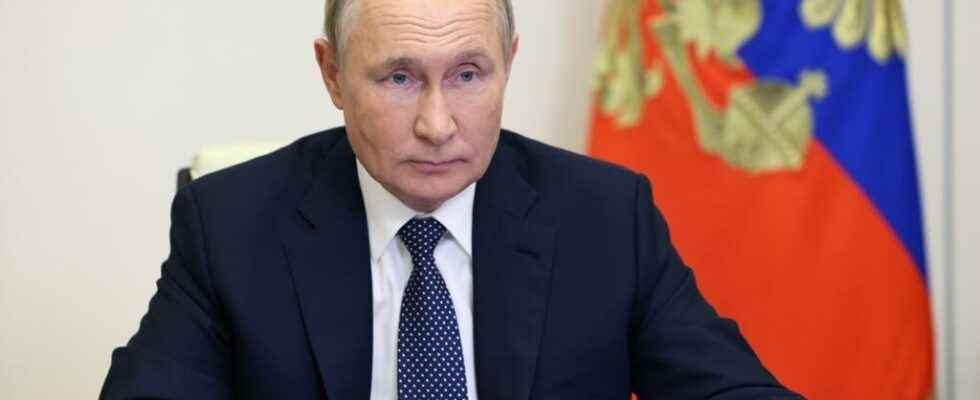The Russian offensive launched on February 24, 2022 plunged the Old Continent into a situation that it thought it no longer knew after the construction of the European Union. The imperialist tendencies of Vladimir Putin, who believes that Ukraine is an integral part of Russia, as in the days of the USSR, have caused the isolation of his country on the international scene. Although this war has awakened a feeling of fear vis-à-vis Russia, thus a form of reconsideration which had disappeared since 1991, it could well mark the end of the reign of its leader.
In 2007, as he completed his second term as head of Russia, Vladimir Putin was named “Personality of the Year” by the American magazine Time. Since then, the man has changed a lot, or at least his ambitions are now clearer, after the launch of this “special operation” in Ukraine. ” It is the personal credibility of the Russian leader that is thrown into the balance. This responds to a very deep, very old, very explicit conviction. Vladimir Putin wants to undo the negative effects of the disappearance of the USSR in 1991 and this is the main logic of this invasion. This is rreconstruct the Russian zone of influence and the post-Soviet zone of influence in Europe “, explains Cyrille Bret, associate researcher at the Jacques Delors Institute and teacher at Sciences Po.
If the world seemed, a few months ago, surprised by the Russian invasion in Ukraine and the expansionist tendencies of Russia, for years however, the Kremlin had been preparing to act in this way. ” Since the mid-2000s, Vladimir Putin has been reconstructing other means of influence : media and propaganda. He also reconstituted the tool of economic influence by constantly strengthening economic ties, particularly in terms of hydrocarbons and minerals. He has also restored all the diplomatic influence of which the Russian network is capable, which for the past ten years has been carrying out real combat diplomacy in Europe and on the margins of Europe. “recalls Cyrille Bret.
► To read also: War in Ukraine: Russian strikes on kyiv, Vladimir Putin claims “moral correctness”
The war had the opposite effect of that intended
This insidious policy was – among other things – intended to recall the ties that united Russia with its former satellites during the time of the Soviet Union. In Ukraine, Vladimir Putin thus counted on relying on the Russian-speaking community to overthrow power. But, according to Julien Théron, political scientist, specialist in conflicts and international security, the invasion of Ukraine ultimately had the opposite effect.
” We has been rehashing for years this kind of myth which said: “But the Russian speakers of Ukraine are pro-Russian, they would rather be Russians than Ukrainians…”. We understand today that the thing is completely fallacious and that Ukrainians, whatever their language, are Ukrainians. There are other linguistic minorities, and these minorities, like the Russian-speaking minority today, are fighting in defense of their sovereign and independent State. : Ukraine “, details the political scientist.
A diet that reveals its true nature
By launching his offensive, Vladimir Putin strengthened the patriotic feeling of the Ukrainians and revealed to those who still doubted the true nature of his regime. This is what Julien Théron asserts in his further explanations:
This war shows both the autocratic and violent character of the Russian regime in terms of intelligence acquisition, and its fragility in terms of military reality. Its fragility, too, with regard to its population. Indeed, during this war, the regime took the opportunity to padlock Russian society even more than it already was, particularly in terms of the media and public freedoms. So indeed, it is very difficult today for the former Kremlin thurifers, often at the political extremes, to go and defend a regime that no longer really pretends to be a democracy. This is what some have tried to explain for years, saying that Russia was a kind of dirigiste democracy. I believe that today, the masks have fallen and that it is indeed an autocratic regime.
If this war in Ukraine revealed the true intentions of Vladimir Putin, it also demonstrated the limits of a country which was until then presented as a great military power. A conflict which, as Cyrille Bret says, condemned Vladimir Putin to jeopardize the survival of his own regime.
Julien Théron is the co-author, with Isabelle Mandraud, of the book Putin: the strategy from disorder to war.
► To read also: Ukraine: Vladimir Putin castigates the West which seeks to “divide” Russia
